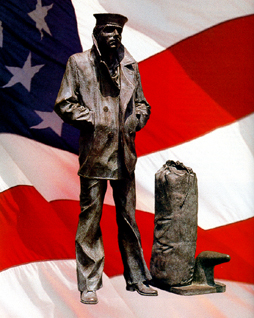KIDDER-HENRY
HENRY KIDDER

CRM

Recognizing the enormous potential intelligence gain, the Chief of Naval Operations (CNO) Admiral Charles Hughes suggested to Pacific Fleet commanders in 1923 that Navy radio operators listen for Japanese radio messages.6 Several highly motivated Navy and Marine Corps radio operators had some measure of success in this endeavor. One of those radio operators was Chief Radioman Harry Kidder, who was an amateur radio enthusiast and an expert radioman stationed in the Philippines. While performing his duties as a communicator, he noticed strong Morse code signals he did not understand. Because of the prevalence of the IJN in the Pacific and the CNO’s request to monitor Japanese communications, he assumed the code was Japanese and asked the wife of a friend to help him understand the code. She taught him the Japanese alphabet, katakana, which he began to copy regularly.7 Whether naval intelligence leaders in Washington were aware of Kidder’s accomplishments at the time is not clear; however, Kidder’s initiative and expertise at copying the katakana code paid enormous dividends in the years to follow.

